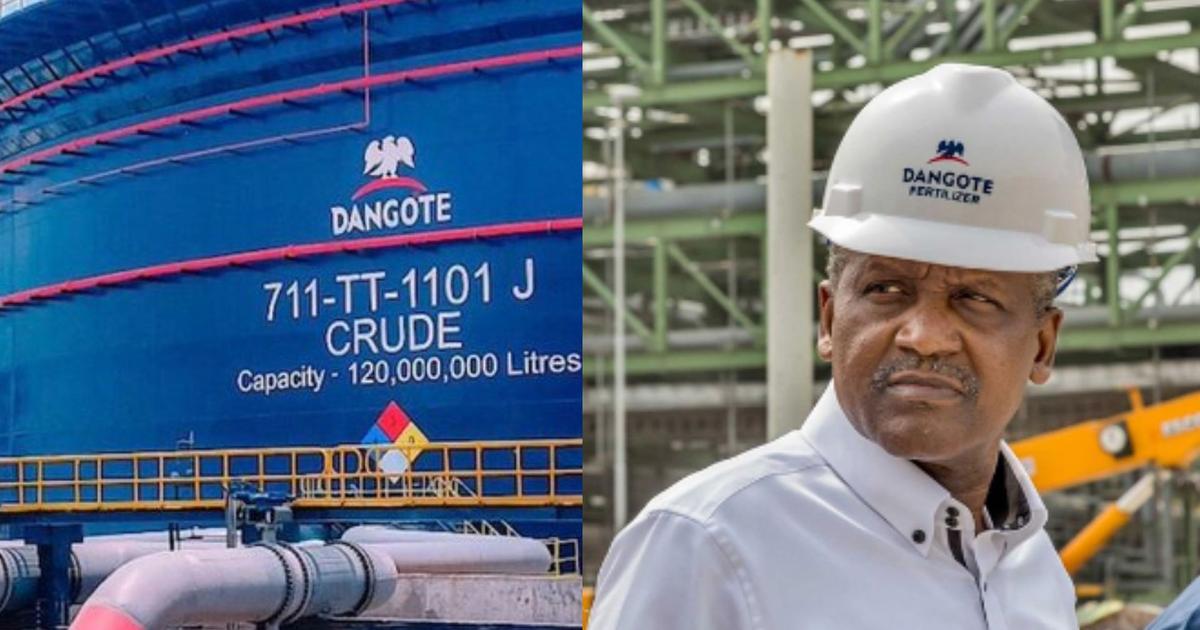● Behind the gleam of Dangote’s $20 billion refinery stands a quieter heir to the oil age
● How Dantata’s distribution network became counterweight to state monopoly and his billionaire sibling
For decades, of the Nigerian fuel market was dictated by government monopolies on one side and politically connected conglomerates on the other.
Ultimately, the choreography of supply and scarcity was dictated by the state, and private distributors were consigned to dance around its shade. But as the Dangote Refinery’s $20 billion behemoth ignited a new era, a familiar surname emerged as a juggernaut and quiet conqueror.
That surname is Dantata. And the man bearing it, Sayyu Dantata, half-brother to Aliko Dangote, has become the refinery’s most discreet yet decisive beneficiary. While Africa’s richest man basks in global acclaim for building the world’s largest single-train refinery, it is Sayyu, less flamboyant and rarely quoted, who has transformed family ties into a distribution empire, making his MRS Holdings Nigeria’s most dominant private fuel retailer.
The Dantata-Dangote synergy makes it even more understandable why Nigeria’s business aristocracy is crafted from kinship and capital. This is because the thread of kinship is stronger in the house of Dantata. The family’s legacy stretches from colonial-era trading wealth to its titanic fortune, today. It’s unsurprising too that Aliko Dangote, Africa’s richest, is the family’s most visible heir. Yet his half-brother, Sayyu, has played his hand with a subtler genius: using bloodlines to bask in reflected glory while securing the foundations of his own dominion.
Industry insiders note that MRS Holdings’ early partnership with the Dangote Refinery was no accident of timing. It was kinship leveraged into contract, trust transmuted into supply, and family loyalty converted into market access. That supply line is assured and preferential, and this gives MRS an edge no rival could easily replicate. While others negotiated uncertain allocations, Dantata’s stations brimmed with product. While competitors buckled under scarcity, his network expanded.
The filial tie did not make him a billionaire; but it made him the refinery’s chosen distributor, and in a fuel-starved nation, that was equivalent to striking oil.

However, before the refinery flourished, MRS Holdings was an energetic but modest player. It had presence, yes, but not supremacy. Today, it commands a retail network of more than 800 fuel stations, a lattice across Nigeria’s geography, making it the largest private distributor after the state-run NNPC.
Each station is both a node of influence and franchise of power. Together, they give Sayyu Dantata what economists call distributional dominance. No other private firm moves as much petrol, no other network enjoys such coverage, and none possesses the refinery’s patronage in the same measure.
MRS has become the unofficial retail arm of Dangote Refinery, the river through which its petrol flows to the streets, villages, and highways of Nigeria. The refinery supplies; MRS delivers. In that marriage of supply and distribution, Dantata has placed himself at the nexus of Nigeria’s fuel economy.
The Dangote Refinery itself is an epochal project: 650,000 barrels per day, a $20 billion bet on Nigeria’s self-sufficiency, and the crown jewel of Aliko’s industrial ambition. But every refinery is only as powerful as its distribution. What is fuel without pumps, storage, and stations to carry it into daily life?
Here lies Sayyu’s advantage. By locking in early as a distribution partner, MRS positioned itself as the refinery’s arterial system. Others may import, scramble, or negotiate supply, but MRS has secured its flow at the source. It is this proximity to the refinery’s jugular that has enabled its breathtaking rise.
Analysts describe the relationship in blunt terms: “MRS is effectively the refinery’s retail extension,” one Lagos-based energy consultant observed. The benefits are plain: consistent supply at competitive cost, guaranteed volumes, and an image burnished by its kinship with Africa’s most celebrated project.
In a market undergoing its greatest shake-up in decades: the deregulation of subsidies, the restructuring of imports, and the rebalancing of state dominance, Sayyu Dantata has emerged as the unlikely counterweight; not the state, not Aliko himself, but the half-brother whose silence has always concealed ambition.

To understand Sayyu’s positioning, one must also appreciate the balance of forces in Nigeria’s oil market. On one end stands the Nigerian National Petroleum Company Limited (NNPC), still the largest player, controlling infrastructure and wielding policy influence. On the other stands Aliko Dangote, whose refinery has disrupted old certainties and begun to dictate new ones.
Between these two poles, Sayyu has carved space by siphoning quietly into market gaps. He is no challenger to the NNPC’s monopoly or Aliko’s refinery; he is their indispensable complement. The state supplies policy, Aliko supplies product, and Sayyu supplies reach.
This triangulation makes him indispensable. Remove MRS, and the refinery struggles to distribute. Remove the refinery, and MRS’s dominance wanes. Remove the state, and the entire choreography collapses. But within this dance, Sayyu’s role has become more functional and strategic. He has become the balance wheel between public monopoly and private colossus.
Skeptics may dismiss Sayyu’s rise as mere nepotism, but to reduce it to kinship alone is to misunderstand both the man and the market. Bloodlines opened the door, but foresight furnished the house.
Sayyu read the direction of fuel deregulation early. He saw that subsidy regimes would falter, that Nigeria’s thirst for refined products would grow, and that distribution, not refining alone, would be the true bottleneck. Where others fought to build tanks, he built networks. Where others courted government contracts, he courted geography, placing stations not merely in cities but along arterial roads, at border towns, and in under-served hinterlands.
The Dangote name provided access, but strategy provided scale. Together, they fused into dominance. Still, the deeper question is whether Sayyu is merely a beneficiary of Aliko’s empire or a builder of his own. The answer, inevitably, is both. He benefits immensely from the family connection: the early partnership, the refinery’s blessing, the halo of trust. But he also built the infrastructure to convert that access into dominance.
This duality is his genius. Unlike many scions of business dynasties who squander opportunity, Sayyu turned privilege into power. He did not rest on the refinery’s glow but expanded relentlessly, scaling MRS into a behemoth of pumps and depots. The kinship dividend was seed capital; the harvest is his own.
As Nigeria’s fuel landscape resets, Sayyu Dantata’s silhouette looms larger. He is not the richest; that crown still sits on Aliko’s head. He is not the regulator; that remains the state’s preserve. But he is now the market’s most powerful private distributor, the man through whose stations the lifeblood of Dangote’s refinery pulses daily.
This role elevates him beyond the shadow of “Aliko’s half-brother.” He is now an actor in his own right. For Nigeria, the implications are profound. The fuel economy is no longer a binary contest between state and refinery; it is now a triangle, and Sayyu’s corner may prove the most quietly enduring.
The story of Sayyu Dantata is thus not merely a tale of business acumen but a parable of family and fortune. It is about how kinship and foresight can sculpt opportunity and manifest it.
The Dantata family name, forged in commerce a century ago, has now birthed two modern titans: Aliko, the builder of factories, and Sayyu, the facilitator of networks. One refines; the other distributes. One constructs the industrial cathedral; the other ensures its mass is heard in every village.
Together, they embody the enduring power of legacy in Nigerian capitalism. But separately, they remind us that family ties are may become economic engines, capable of shaping markets, tilting monopolies, and creating new monarchs of industry.
For Sayyu Dantata, the challenge now is scale. Eight hundred stations mark dominance today, but tomorrow may demand more. Competitors will not remain idle; regulators may intervene; politics may complicate supply. The refinery’s success itself may attract new distributors, threatening MRS’s privileged role.
Yet if history is guide, Sayyu will remain ahead; not only because of his surname, but because he has married foresight to fortune.



